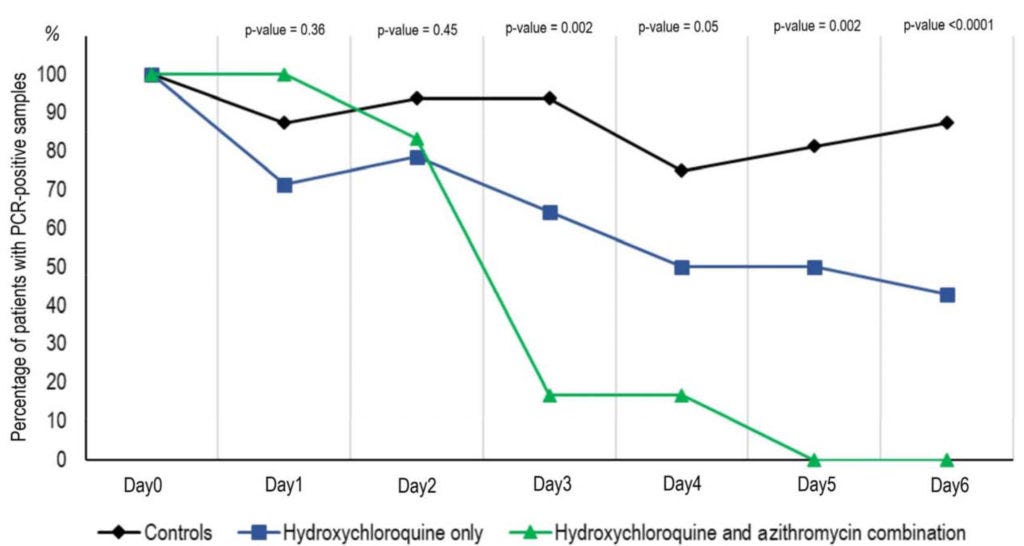UK investigators used an unusually large dose – why?
Publicly available data suggests that a crime of negligence or malfeasance has been committed, and it’s possible it contributed to the deaths of patients in a UK clinical trial. The credit for this story must go to Xavier Azalbert of France Soir who did a huge amount of work on it. I’m writing it here with his permission because, to my knowledge, I don’t think the story has had anywhere near the coverage it deserves.
When patients across the UK fell seriously ill and hospitalised with Covid-19, some were offered the chance to take part in a “RECOVERY” medical trial. Its primary investigators, Professor Martin Landray and Professor Peter Horby, had big money backing for RECOVERY to find a treatment for the raging pandemic. With few options available, family members of desperately ill Covid-19 patients would sign consent to the trial, but on the first day of treatment, the trial would administer an unusually large dose of hydroxychloroquine (HCQ) to those patients. This is the story of how such a thing happened, and what it might tell us about the pandemic response.
The background
When the Recovery Trial was announced in March 2020, it was supposed to investigate hydroxychloroquine as a potential treatment for Covid-19. Much like Ivermectin, hydroxychloroquine became a widely used but controversial drug during the pandemic. Much like Ivermectin, it’s a World Health Organisation “essential medicine” in use for decades, meaning its dose and toxicity have been well established. As I previously reported, chloroquine had been identified as a treatment for the original SARS virus all the way back in 2006.
That hydroxychloroquine might be effective against SARS-CoV-2 was hardly a radical idea. Just four weeks after SARS-CoV-2 had been formerly identified and long before most were even aware of a brewing pandemic, a research team from China had already submitted a study to Nature showing “Hydroxychloroquine can efficiently inhibit SARS-CoV-2 infection in vitro.” Four weeks later, a study in France was ready and registered, and by the 18th of March 2020, they had results that looked very promising. Led by Professor Didier Raoult, they showed that as time went on, Covid-19 patients taking a hydroxychloroquine therapy were recovering significantly faster, indicated by the green line below.

Fig 1. Results show significant improvement in the hydroxychloroquine patients.
With the world growing increasingly anxious about rising cases, you would be tempted to think these results would be well received, but the investigators behind the trial were publicly mocked and derided in a series of media briefings. As I previously reported, many of the academics attacking Didier Raoult were in receipt of money from the pharmaceutical industry. Some were even candid enough to promote their own trials as they talked down these positive results. What was going on? The attacks took the investigators by surprise and it marked the beginning of a series of incongruous developments in the pandemic response.
The attacks didn’t stop other researchers. All over the world, dozens of studies were rolling in that showed hydroxychloroquine was effective. If you’re familiar with the rest of my work, you’ll understand the pattern by now; the next stage is for the “correct” people and institutions to investigate the drug and study it “properly.” Those “proper” institutions then present an “unambiguous and clear answer” on the drug’s usefulness.
Forget the Didier Raoult study, the independent researchers and the fact that entire nations had already adopted the drug for use because The RECOVERY trial was here, and it was going to answer the question definitively. It’s worth pointing out, the trial was funded by the Wellcome Trust and the Bill and Melinda Gates Foundation. The editorial of these moments always sits silently between the lines; the competent people are here! Sitting in their plush and industry-funded lobby, they were going to tell us if Hydroxychloroquine worked or not. The lead investigators were Professor Peter Horby and Professor Martin Landray.
Professor Peter Horby announcing the RECOVERY trial in early 2020
Despite the hyper-competent veneer, there was an inexplicable decision resting at the heart of the RECOVERY trial, one which ought to have been challenged by journalists if we didn’t live in a sermon/congregation paradigm of “The Science”. What was this strange issue?
Source – https://philharper.substack.com/p/a-toxic-dose-of-hydroxychloroquine
